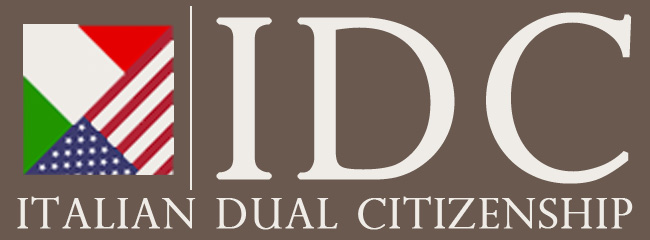FREQUENTLY ASKED QUESTIONS
ANSWERS TO THE MOST COMMON QUESTIONS WE RECEIVE
Contents:
- Can Americans hold dual citizenship?
- Do I qualify for Italian dual citizenship?
- How do I apply for dual citizenship in the US?
- How can I get Italian citizenship?
- What documents do I need for Italian citizenship?
- How long does it take to get Italian dual citizenship?
- How much does it cost to get Italian dual citizenship?
- How can an American get dual citizenship in Italy?
- What qualifies you for dual citizenship?
- What Is A.I.R.E?
- Are you an Italian citizen if you are born in Italy?
- How long do you have to live in Italy to become a citizen?
- Is dual citizenship allowed in Italy?
- Does Italy have birthright citizenship?
- Does Italy allow dual citizenship?
- Does Italy allow triple citizenship?
- What is the easiest country to get dual citizenship?
- Can I live in Italy as an American citizen?
- How long can a US citizen live in Italy?
- What is the cost of living in Italy?
- How can I get permanent residence in Italy?
- How do I establish residency in Italy?
- Is Italy expensive to live?
- Can a US citizen work in Italy?
- What is a good salary in Italy?
- Can Americans buy property in Italy?
- Can a US citizen retire in Italy?
- Does Italy use the euro?
- Does Italy require a visa?
Can Americans hold dual citizenship?
Yes. While dual citizenship is not formally recognized in the United States, there is still no legislation against it. Also, in the event of an American taking on responsibilities relating to citizenship elsewhere, he or she will not forfeit his or her original citizenship.
Do I qualify for Italian dual citizenship?
The majority of people of Italian descent qualify for Italian citizenship. You may qualify for Italian citizenship if you meet some basic requirements: The main requirement is that your Italian ancestor did not naturalize prior to the birth of his child in the US and prior to 1912 and if there is a female intermediate ancestor her child was born after January 1, 1948. Certain cases are unique and must be carefully preliminary assessed.
How do I apply for dual citizenship in the US?
You can apply for Italian citizenship by descent through the consulate or directly in Italy (if you wish to speed up the process and if you can stay in country for a couple of months). The procurement of all the supporting documents generally takes a few months and it’s a very delicate process. The number of people seeking citizenship is constantly increasing and as a consequence Italian consulates are very demanding.
How can I get Italian citizenship?
Once you are a citizen of Italy, it can take anywhere from one to six weeks to get a passport after all the information has been submitted. Many U.S. consulates offer same-day service so long as an applicant is already in their database and their vital records are in Italian.
What documents do I need for Italian citizenship?
You will need a birth certificate for your mother and father, along with a permanent resident card and Italian passport for your grandmother. Alternatively, a certificate of naturalization for your maternal grandmother will suffice in place of the these last two items.
How long does it take to get Italian dual citizenship?
How long does it take to get Italian citizenship – Once accepted, it can take up to six months for the Italian Consulate to register the information on your application. You can then apply for an Italian passport. It may take between one and three years to complete the full process.
How much does it cost to get Italian dual citizenship?
Italian citizenship requires an initial €300 for the application process and this amount is non-refundable whether citizenship is granted or not. As for dual Italian citizenship, many factors determine this cost such as how many generations back you are applying, the number of documents required, supporting documents required, the extent of legal amendments required to fix discrepancies or inconsistencies, the extent of translation required, how many applicants are applying, and the location of your applicants. As a rule, the dual Italian citizenship process can cost anywhere between $500 – $13,000.
How can an American get dual citizenship in Italy?
If you can prove that you have legitimate Italian ancestry, you can lawfully pursue dual citizenship in Italy. Italy has permitted dual citizenship with the United States since 1992 and you will not need to renounce your original citizenship during this application process.
What qualifies you for dual citizenship?
Naturalization is another process that can help you obtain dual citizenship. This process takes certain factors into account such as marriage to an Italian citizen, financial investment in Italy and the number of years you have been a resident in the country.
What Is A.I.R.E?
A.I.R.E refers to Anagrafe degli Italiani Residenti all’Estero and this is the office in which an Italian citizen must register if they are residing abroad for more than 12 months.
Are you an Italian citizen if you are born in Italy?
Italian citizenship is granted through the paternal line at birth and an Italian citizen can be born in a country whose citizenship is received at birth by the parents born there. However, in lie with the principle jus sanguinis, Italian citizenship can be acquired at birth if one or both of the parents have Italian citizenship.
How long do you have to live in Italy to become a citizen?
You may be eligible to apply for citizenship if you live in Italy for a sufficient period of time. Eu citizens may be eligible after four years in the country, while non-EU citizens may qualify after ten years. However, this time frame can be less for individuals with Italian heritage.
Is dual citizenship allowed in Italy?
Yes. Dual nationality is allowed in Italy and you do not need to renounce any other citizenship during this process. If you can prove your Italian ancestry and blood ties to the country, you can apply to become an Italian citizen.
Does Italy have birthright citizenship?
Citizenship is acquired automatically when a birth parent has Italian citizenship. If the state of the parents is unknown or the parents cannot transmit their own nationality to the child, Italian citizenship is considered in line with the principle of jus soli.
Does Italy allow dual citizenship?
Yes. Italy passed a law in 1992 allowing those of Italian descent to lawfully obtain dual citizenship. Italy requires you to prove your Italian ancestry and apply for citizenship through your local Italian consulate. Italy does not require you to renounce your current citizenship(s) when claiming dual citizenship.
Does Italy allow triple citizenship?
Yes. Italy permits multiple citizenship and you do not need to renounce your original citizenship during this process. If you can prove your Italian ancestry and blood ties to the country, you can apply to become an Italian citizen. Alternatively, the same rule applies in the case of naturalization through residency.
What is the easiest country to get dual citizenship?
Ireland and Italy are known to be the most lenient countries in terms of dual citizenship. If you can prove your ancestry, you can apply for citizenship in each country. However, not everybody qualifies and certain limitations exist. For example, if the qualifying ancestor was female and born prior to 1948, only children born after that year can apply. Further limitations exist for ancestors born in certain parts of Italy such as Venezia-Giulia, Veneto, and Tentino Alto-Adige.
Can I live in Italy as an American citizen?
American and Canadian citizens do not need a visa to stay in Italy for ninety days or less. However, you are not permitted to work in Italy during this time, in which case either a business visa or residency is required. If you can afford to live in Italy without working, you may apply for an elective residence visa.
How long can a US citizen live in Italy?
An American citizen can stay in Italy for ninety days or less on either a tourist or business visa. You must declare the purpose of your visit before entry and further information can be retrieved from the Ministry of Foreign Affairs and the Polizia di Stato.
What is the cost of living in Italy?
The cost of life in Italy is very affordable. Because of the financial crisis in Europe cost of life in Italy is lower if compared to other countries and especially to the US. Nonetheless, Italy has some of the oldest and best universities and offer top quality medical services free of charge to all its citizens.
How can I get permanent residence in Italy?
If you have lived in Italy for more than five continuous years, you can apply for permanent residency. You must apply for this residency to your local police headquarters no later than the expiration date of your existing permit.
How do I establish residency in Italy?
You can establish residency in Italy if you relocate to Italy with the purpose of applying for Italian citizenship by descent. You will be granted a visa that will allow you to continue resisting in the country for as long as the citizenship process takes. You can otherwise apply for a work or student visa.
Is Italy expensive to live?
For many people, Italy can seem like a rather expensive place to live. However, everything is relative and as a rule, the cost of living is much higher in the city than in rural areas. More specifically, this cost of living will depend on your lifestyle and whether you choose to live in a frugal manner or not.
Can a US citizen work in Italy?
American citizens require a business visa (work permit) from their employer before arriving in Italy to work.
What is a good salary in Italy?
Salary can vary in Italy just as much as anywhere else in Europe. Experience and qualifications will have a lot to do with this amount but the location and benefits involved will also be a factor. Recent statistics show the average disposable salary for an Italian resident is €1,280 which is enough to live comfortable in most cities and towns.
Can Americans buy property in Italy?
Yes. While non-EU residents must have a valid residence permit to buy property in Italy, there is a reciprocity which allows Italians to buy property in America and vice-versa. In other words, Americans can purchase property in Italy with or without Italian residency.
Can a US citizen retire in Italy?
US citizens do not need a visa to enter Italy and can stay for ninety days or less. However, US citizens who retire to Italy or plan on living there without working should apply for an elective residency visa.
Does Italy use the euro?
Yes. Italy is one of 20 countries in Europe that use the Euro as currency.
Does Italy require a visa?
As Italy is part of the Schengen Zone, US citizens can travel to Italy and stay for ninety days or less. However, you must have at least three months validity on your passport after the date of your return to the United States.


